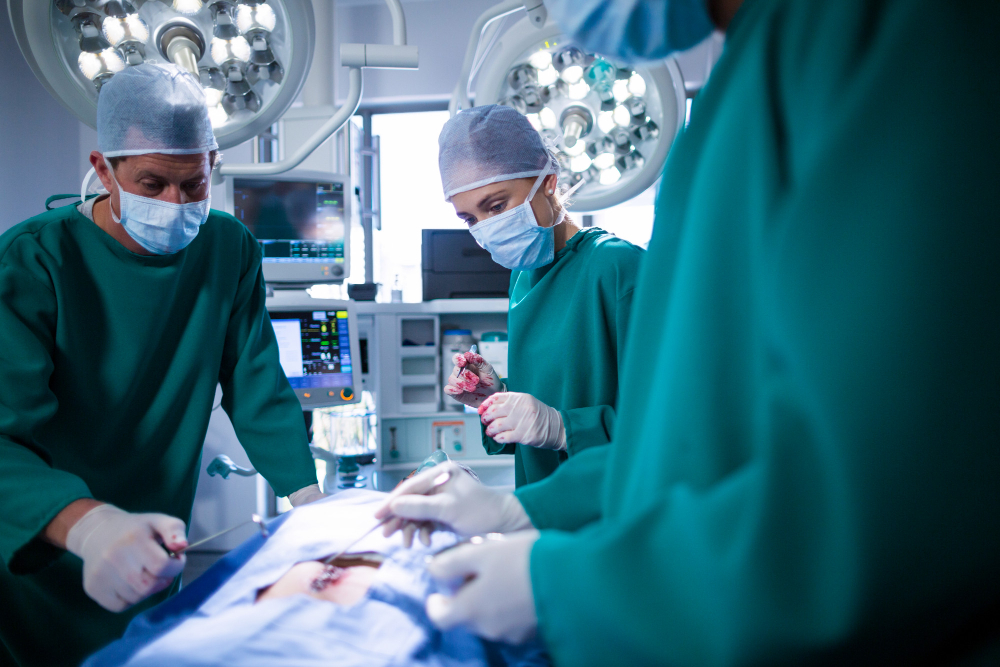-
 Mail us
Mail usmyhealthhospital2021@gmail.com
-
 Toll Free
Toll Free+91 9111674111
- Book Appointment
Obstetrician and Gynecologist
My health hospitals has Best Gynaecologists with 10 + years of experience in the field of gynaecological diseases and treatment especially Infections of genital tract and their symptoms with advanced and best surgical technology (Laparoscopy) with no complications and best results through safe and painless surgery with less hospital stay duration .
Pelvic inflammatory disease (PID) is a serious infection of the female genital tract, including the fallopian tubes, uterus, cervix, and vagina. It is caused by the spread of bacteria, often from sexually transmitted infections, from the vagina to the cervix and beyond. The signs and symptoms of PID can range from mild to moderate, typically presenting as lower abdominal pain and discomfort. In severe cases, systemic infection may lead to elevated fevers and intensified pain. Treatment is crucial and is usually determined by the symptoms observed, with the guidance of a treating gynecologist.
Pelvic inflammatory disease can have various causes, with sexually transmitted infections being a common trigger. The infection may lead to inflammation in the pelvic organs, potentially resulting in complications such as Fitz-Hugh-Curtis syndrome, which involves inflammation of the liver capsule. Prompt medical attention is essential, and antibiotics are often prescribed for the treatment of PID. The specific medication is chosen based on the severity of the infection and individual patient factors. Regular check-ups with a healthcare professional are important for monitoring and maintaining women's reproductive health.
Understanding the symptoms, causes, and available treatments for pelvic inflammatory disease is crucial for early intervention and prevention of complications. Awareness of pelvic inflammatory disease symptoms, such as pelvic pain and discomfort, is particularly important for women to seek medical advice promptly. Timely and appropriate care can help prevent the spread of infection and reduce the risk of long-term complications associated with PID.
Factors which might increase your risk of pelvic inflammatory disease-

Signs and symptoms of PID when present, might range from the following :

No single test can accurately diagnose pelvic inflammatory disease(PID). Instead, your gynaecologist may treat based on the below findings -
You may be also be adviced additional tests if the above are not confirmatory -

Immediate Treatment for PID may cure the infection without any complications and most often includes:
Surgery – only if there is severe infection , and an abscess which might cause systemic infection a surgical procedure(Abscess drainage through laparoscopy) might be done with complete explanation of benefits and risks of the procedure .
To Prevent developing any genital infections -
Consult your doctor immediately if you notice any of the above mentioned symptoms of any genital infection.

Most people get PID through unprotected sex. Sex lets bacteria enter your reproductive system, where they can infect your organs.
Pelvic inflammatory disease pain is mainly felt in your lower abdomen or pelvic region. It may feel tender and sore or like a dull ache. You may also feel pain deep in your pelvis during sex.
Yes, PID spreads most often during direct sexual contact.
Surgery is rare for PID but can help in some cases. If you still have symptoms or an abscess after taking antibiotics, talk to your healthcare provider about surgery.
If you have pelvic inflammatory disease, tell your sexual partner(s). They should receive treatment. Otherwise, you may get PID again when you resume sex.
If you get prompt diagnosis and treatment for an infection, antibiotics can cure PID. But treatment can’t reverse any damage that already happened to your reproductive organs. Don’t wait to get treated. See your provider right away so you can get the help you need.
PID can affect fertility. Of the people who had PID, studies found that 1 in 8 had difficulty getting pregnant. Up to 1 in 10 people ultimately received a diagnosis of infertility. People who had repeat infections had a harder time getting pregnant.
Bacteria from PID can cause scarring on your fallopian tubes. This scar tissue makes it harder for an egg to get from your ovary to your fallopian tube, then down to your uterus. If an egg can’t get through your fallopian tube, sperm can’t fertilize it.
Yes, you can get PID again. Getting PID once doesn’t protect you from getting it again.
You and your partner should wait a week after finishing your antibiotics before resuming sex. Doing so will help prevent re-infection.
Yes, it’s possible to get PID if you’re a woman or person AFAB and only have sex with other women or people AFAB. This is because bacteria that cause PID can live on a vagina, penis or any object you place in your vagina.
Yes, it’s possible to get PID when the bacteria that normally exist in your vagina travel up into your reproductive organs. This is usually not the cause, though.
Yes, PID can be serious. Early diagnosis and treatment are essential to reducing your risk of long-term complications like infertility.
If you cannot find answers to your queries, please fill out the ENQUIRY form or call the number below. We will contact you shortly
+91 9111674111